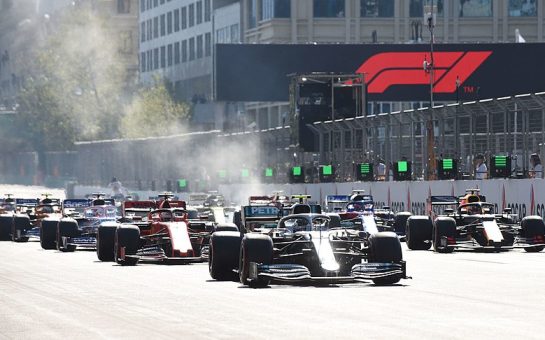Across the footballing spectrum, many fans face the tricky dilemma of whether to take a chance and place their faith – and often their money – on the early kick-off.
‘Never back the early kick-off’ is a phrase that has gained popularity online, resonating with fantasy football managers and casual matchday gamblers alike.
Driven by social media hype, it has taken on a pseudo-religious status.
Many enthusiasts now adhere to it blindly, despite the lack of empirical evidence to justify doing so.
Its connection to fantasy football is undeniable.
For seasoned players, selecting a captain is always a nerve-wracking decision, regardless of whether the player is coming up against a newly promoted side or the champions.
Backing a player in the early kick-off adds another layer of complexity.
It often means going against conventional wisdom, braving a torrent of differing opinions, and ignoring the nagging voice in your head urging you to play it safe.
That same voice usually favours a later, more promising fixture – like the 5.30 pm slot – which somehow feels less risky and more rewarding.
But why is this the case? Captaining a less popular player who delivers a big haul can significantly boost your league ranking.
However, if the gamble does not pay off, you spend the rest of the weekend in nervous anticipation, dreading the inevitable Mohamed Salah double against a seemingly tougher opponent.
Any FPL manager knows that a poor return from your captain can impact not only your gameweek position but also your mood.
This is where confirmation bias kicks in and fans often look for data that supports their beliefs.
For instance, if a player wants to justify captaining Erling Haaland in the 5.30pm fixture over Cole Palmer at 12.30pm, they’ll usually find a reason to do so.
The same logic applies to gambling.
The thought of falling at the first hurdle can be unsettling for any punter relying on a mixture of goals scored and corners taken to make their bet pay off.
Consequently, superstition often prevails.
For the risk-averse, the sensible move is to hedge your bets and trust the later kick-off to do the heavy lifting.
According to a study by Infrostrada, between the start of the 2006/07 and the end of the 2010/11 Premier League seasons, there were generally more goals in the early kick-off (2.73) compared to the 3pm fixture (2.65).
The Analyst published data tracking various metrics since the start of the 2016/17 season.
This revealed that the 12.30pm kick-off was only surpassed by two-time slots in terms of expected goals – Saturday 5.30 pm and Sunday 4.30pm – and the Sunday 4pm and 4:30 pm slots for goals per game.
This suggests that the early kick-off should not be discounted completely.
However, the same set of data did show that Saturday and Sunday evening kick-offs tend to feature more penalties, more expected assists, and more shots on target.
The data also reveals that there are statistically more red cards in the early kick-off (0.19), with the closest time slot being the 7.45 pm Tuesday match at 0.14.
This can have a knock-on effect, as a team reduced to ten men is less likely to create meaningful attacking opportunities.
Similarly, they tend to become more compact in an effort to defend a scoreline.
While this lends some belief to the mantra of avoiding the early kick-off, it does not fully justify a decision to avoid it entirely.
Premier League managers, especially those of European teams, often cite fixture congestion as a significant factor.
Teams which have played additional matches will inevitably be more fatigued than some of their rivals.
They may struggle with consistency and fluidity due to squad rotation, making them less likely to score and more susceptible to conceding.
A clear example of this is West Ham’s 2021/22 season, where they enjoyed a lengthy run to the semi-finals of Europe’s secondary competition. While fans undoubtedly relished the European journey, the sheer number of games began to take its toll on the squad.
In the first ten games of the season, West Ham posted an average expected goals of 1.63 per game.
However, this dropped to just 1.21 in the final ten games of the season.
Similarly, they saw a rise in goals conceded from 1.1 goals per game in the first ten fixtures to 1.6 in the final ten, managing only a single clean sheet.
This shows that the need to avoid the early kick-off may become more relevant as the season progresses.
Another factor is the way players prepare and fuel themselves before kick-off.
James Collins became Arsenal’s first nutritionist in 2010 and has since played a pivotal role in several major sporting successes, including France’s World Cup win in 2018 and Chelsea’s Champions League victory in 2021.
He has consistently emphasised the impact that insufficient nutrition can have on players’ performance levels.
In an interview with The Athletic, Collins said: “One of the big things we see with players is that for 3pm kick-offs, they fuel really well.
“However, for lunchtime kick-offs, they’re often under-fuelled, and that can result in energy levels not being as high.
“Equally, after evening kick-offs, players are sometimes coming into the next game under-recovered, which means they’re not refuelling properly after the match.
“If you’re playing in Europe or dealing with fixture congestion, it means that incrementally, you’re going to be under-recovering, which results in residual fatigue.”
This supports the claims to avoid early kick-offs, as under-fuelling can certainly affect player performance.
However, as clubs continue to invest in any area that could provide even a fractional advantage over their opponents, it’s likely that this will become a diminishing factor in the years to come.
Overall, there is some truth to the claim, but not enough to fully buy into it.
Feature image: Free to use from Pixabay





